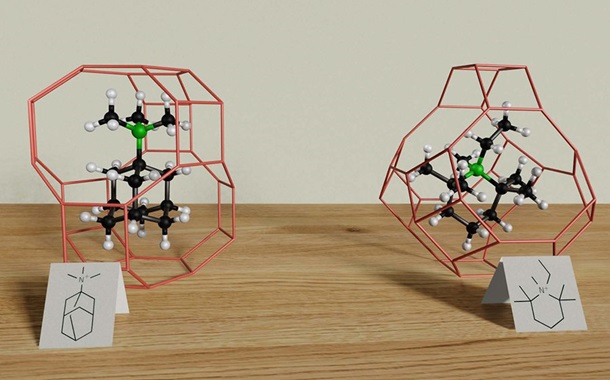Competency Model: A Study on the Cultivation of College Students' Innovation and Entrepreneurship Ability
Downloads
Doi:10.28991/HIJ-2023-04-04-011
Full Text:PDF
Downloads
García-Palma, M.B., & Molina, M.I.S.M. (2016). Knowledge and female entrepreneurship: A competence and social dimension. Suma de Negocios, 7(15), 32-37. doi:10.1016/j.sumneg.2015.12.005.
Ahn, T.U., Han, D.H., & Kang, T.W. (2019). The Effects of Entrepreneur Competence Characteristics on Start-Up Performance: Focusing on the Mediating Effect of the Start-Up Support System. The Korean Society of Business Venturing, 14(1), 73-83. doi:10.16972/APJBVE.14.1.201902.73.
Rivera-Kempis, C., Valera, L., & Sastre-Castillo, M.A. (2021). Entrepreneurial Competence: Using Machine Learning to Classify Entrepreneurs. Sustainability, 13(15), 1-24. doi:10.3390/su13158252.
Hu, X. (2021). An Empirical Study on Entrepreneurial Education Competency of Young College Teachers Based on K-means Clustering Algorithm. EAI International Conference, 391, 16-25. doi:10.1007/978-3-030-87900-6_3.
Marta, C.V., & Beatriz, R. (2020). Fostering Innovation and Entrepreneurial Culture at the Business School: A Competency-Based Education Framework. Industry and Higher Education, 34(3), 160-176. doi:10.1177/0950422219895209.
Pranowo, A.S., Sutrisno, J., Pudjosulastiono, & Siregar, Z.M.E. (2020). The Entrepreneurial Competency, Innovation Capability and Business Success. Quality - Access to Success, 21(178), 2-25.
Bazyl, L., Orlov, V., Fursa, O., & Oruzha, L. (2021). Development of entrepreneurial competence in design education. Financial and Credit Activity Problems of Theory and Practice, 2(37), 493-502. doi:10.18371/fcaptp.v2i37.230672.
Sergeeva, T., Podbolotova, M., Natyrova, E., Averianova, S., & Lobanov, I. (2021). Development of student entrepreneurial competence using the resources of social partnership. SHS Web of Conferences, 98, 1-5. doi:10.1051/shsconf/20219802005.
Adeyemo, S.A., Ogunleye, P.O., Adeyemi, M.A., & Kareem, T. (2021). Entrepreneurship Education as an Impetus to Entrepreneurial Competence and Entrepreneurial Intentions among Polytechnic Students: A Quantitative Approach. Asian Journal of Education and Social Studies, 29-37. doi:10.9734/ajess/2021/v17i430428.
Mantovani, G.M. (2015). Competence value emersion: a key to sound practices in entrepreneural finance. from "q" to "t" ratios in the north-eastern Italian experience. International Journal of Entrepreneurship and Small Business, 24(3), 383-416. doi:10.1504/ijesb.2015.067460.
Walipah. (2021). The Influence of Entrepreneurial Learning Design Meaningfulness on Student Entrepreneurial Competence. 2nd Annual Conference on Social Science and Humanities (ANCOSH 2020), 542, 151-153. doi:10.2991/assehr.k.210413.035
Faltermeier, J. (2021). Measuring and Promoting Entrepreneurial Intentions and Entrepreneurial Competence – Implications for Education. SHS Web of Conferences, 90(3), 151-153. doi:10.1051/shsconf/20219002003.
Edwards-Schachter, M., García-Granero, A., Sánchez-Barrioluengo, M., Quesada, H., & Amara, N. (2015). Disentangling competences: Interrelationships on creativity, innovation and entrepreneurship. Thinking Skills and Creativity, 16, 27-39. doi:10.1016/j.tsc.2014.11.006.
Utami, E.N., & Mulyaningsih, H.D. (2017). The Impact of Competency Entrepreneurship on Micro, Small, Medium Enterprises Performance. International Journal of Management Entrepreneurship Social Sciences and Humanities, 1(1), 24-30. doi:10.31098/ijmesh.v1i1.7.
Scuotto, V., & Morellato, M. (2013). Entrepreneurial knowledge and digital competence: Keys for a success of student entrepreneurship. Journal of the Knowledge Economy, 4, 293-303. doi:10.1007/s13132-013-0155-6.
Budiningsih, I., Sukamto, H., & Mujiani, S. (2021). Dominant determinant characteristics of innovative behavior of new entrepreneur candidates. Management Science Letters, 2021, 1813-1820. doi:10.5267/j.msl.2021.1.022.
Yani, A., Eliyana, A., Hamidah, Sudiarditha, I.K.R., & Buchdadi, A.D. (2020). The impact of social capital, entrepreneurial competence on business performance: An empirical study of SMEs. Systematic Reviews in Pharmacy, 11(9), 779-787. doi:10.31838/srp.2020.9.110.
Bai, J.F., Wei, X.Y., & Yan, J.C. (2017). Research on the Selection of Business-to-Customer e-commerce Logistics Model Based on Analytic Hierarchy Process Method. Proceedings of the 23rd International Conference on Industrial Engineering and Engineering Management, 2017, 11-15. doi:10.2991/978-94-6239-255-7_3.
Zoie, R.C. (2017). Cloud Provider's Services Evaluation Using Triangular Fuzzy Numbers. International Conference on Control Systems and Computer Science, 2017, 123-128. doi:10.1109/CSCS.2017.23.
Benedetto, F., Giunta, G., & Mastroeni, L. (2015). A maximum entropy method to assess the predictability of financial and commodity prices. Digital Signal Processing, 46(C), 19-31. doi:10.1016/j.dsp.2015.08.001.
Miao, C., & Ding, M. (2015). Social vulnerability assessment of geological hazards based on entropy method in Lushan earthquake-stricken area. Arabian Journal of Geosciences, 8(12), 10241-10253. doi:10.1007/s12517-015-1945-x.
Wang, J. & Mangmeechai, A. (2022). Impact of entrepreneurship knowledge literacy curriculum on college graduates' sustainable entrepreneurial competence based on entrepreneurial learning theory. International Journal of Sustainable Development and Planning: Encouraging the Unified Approach to Achieve Sustainability, 17(4), 1309-1316. doi:10.18280/ijsdp.170428.
Sliščne, A., Lčma, G., & Rubene, Z. (2021). Self-Assessment of the Entrepreneurial Competence of Teacher Education Students in the Remote Study Process. Sustainability, 13(11), 1-14. doi:10.3390/su13116424.
Zhang, F., Wei, L., Sun H., & Tung, L.C. (2019). How entrepreneurial learning impacts one's intention towards entrepreneurship A planned behavior approach. Chinese Management Studies, 13(1), 146-170. doi:10.1108/CMS-06-2018-0556.
- This work (including HTML and PDF Files) is licensed under a Creative Commons Attribution 4.0 International License.






















